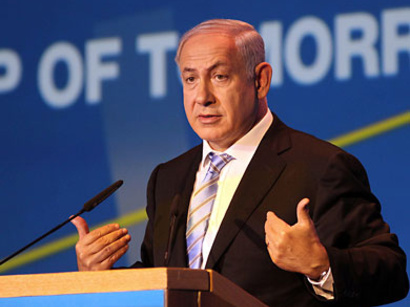While Ethiopian Israelis have held demonstrations in the past, the protests have rarely turned violent, and never on the scale of Sunday`s unrest. The protesters shut down a major highway in Tel Aviv, hurled stones and bottles at police officers and overturned a squad car. They were dispersed with tear gas, water cannons and stun grenades. More than 60 people were wounded and 40 arrested.
The violence caught much of the country, including the government, off guard. Rivlin said Israel was seeing "the pain of a community crying out over a sense of discrimination, racism, and of being unanswered."
"We must look directly at this open wound. We have erred. We did not look, and we did not listen enough," he said. "We are not strangers to one another, we are brothers, and we must not deteriorate into a place we will all regret."
Later Tuesday, Prime Minister Benjamin Netanyahu was to meet with community leaders.
Ethiopian Jews begin migrating to Israel three decades ago and struggled greatly as they made the transition from an impoverished and developing country into high-tech Israel. Over time they have integrated more into Israeli society, serving in the military and making inroads in politics, sports and entertainment. However, many complain of racism, lack of opportunity, endemic poverty and routine police harassment.
These simmering frustrations boiled over after footage emerged last week of an Ethiopian Israeli in an army uniform being beaten by police. Sunday night`s violence was the second such grassroots protest in recent days, and demonstrations are expected to continue.
About 120,000 Ethiopian Jews live in Israel today, a small minority in a country of 8 million. Their absorption has been problematic, with many arriving without a modern education and then falling into unemployment and poverty as their family structures disintegrate.
Many of the older generation work menial jobs — men as security guards and women as cleaners — have low literacy rates and suffer from high rates of domestic violence. Their children speak fluent Hebrew, study in universities and serve in the army alongside native Israelis. But despite such gains, the younger generation is still struggling compared to other Israelis.
Ethiopian Israelis also allege repeated discriminatory slights and, at times, outright racism. In the late 1990s, it was discovered that Israel`s health services were throwing out Ethiopian Israeli blood donations over fears of diseases contracted in Africa. Some landlords have also refused them as tenants, and accusations have been raised that Israel has deliberately tried to curb birth rates among Ethiopian immigrants.
"Anyone who attended the protest yesterday experienced at one point in their life humiliation based on nothing but skin color," said Mehereta Baruch-Ron, a Tel Aviv deputy mayor of Ethiopian descent. "We have had enough. It is time to do something."
More about:
















































